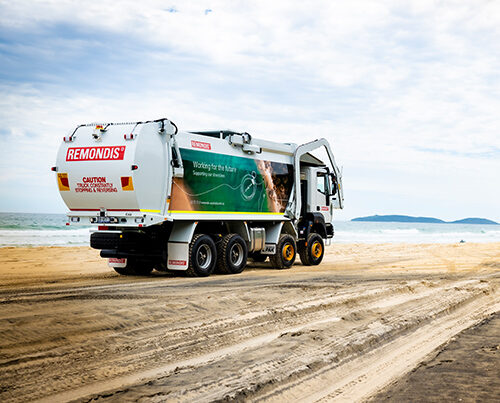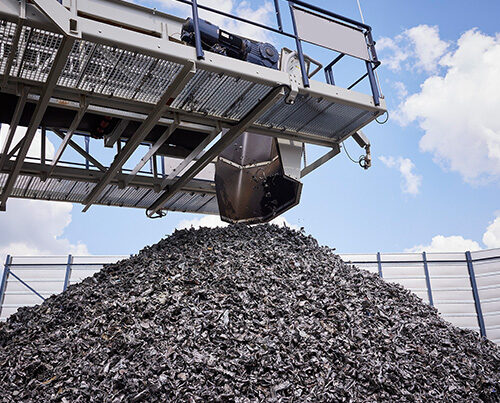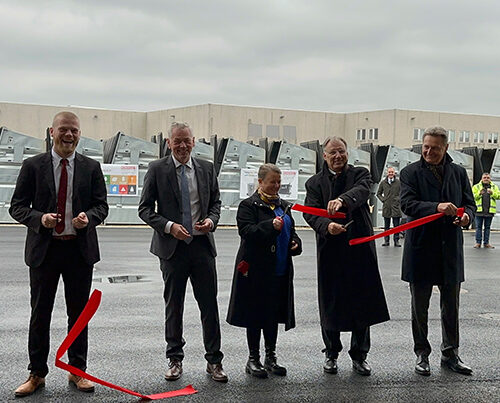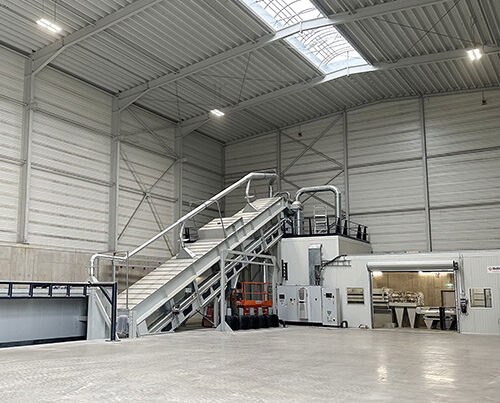REMONDIS leading by example
Whilst the discussions about organic waste bins are coming to a head in Karlsruhe, the Rhine Neckar District is taking its next step towards greater sustainability by building a new biogas plant. Across the country, all sorts of discussions are being held about how or whether to collect organic waste from households even though it has been compulsory to do so since 2015. Some local authorities are well aware of the advantages of increasing the volumes of organic waste they collect, while others continue to hang on in there and swim against the “green” tide. REMONDIS has also been playing its part setting up two new biogas plants.
Environment Minister threatening to issue District of Karlsruhe with a decree
The Minister of the Environment responsible for the German state of Baden-Württemberg is obviously reaching the end of his tether: firstly, his Ministry has sent the district council a draft decree ordering them to collect organic waste separately from other waste streams. Secondly – and this is new – this threat is also targeted at the waste management business responsible for thermally treating the district’s residual waste. The Ministry for the Environment has ordered the council to have a system in place that guarantees organic waste is collected separately by 01 January 2020 at the very latest. It has also ordered the operators of the waste incineration plant not to accept any residual waste after this date if and as long as the district council continues to ignore the law. All waste management businesses are obliged by law to recycle and treat waste to the highest possible standard and this is, the Ministry argues, not the case when organic waste is sent for thermal treatment. This is the first time a ministry has taken such action against a local authority and a waste management business. “We believe that our actions are both legally permissible and necessary to ensure that the situation in the District of Karlsruhe reflects the law,” commented Environment Minister Franz Untersteller.
“The plant will be able to handle greater volumes of local organic waste from the Rhine Main region which, in turn, means fewer materials need to be transported to plants located outside Hessen.”
Benjamin Scheffler, FES Managing Director
Green electricity soon to flow through the Rhine Neckar District
The Rhine Neckar District lies less than 60 kilometres north of Karlsruhe. In contrast, it recently gave the green light to AVR Bioterra to build a new organic waste digestion plant. The fact that REMONDIS Südwest GmbH bought a 49% share in AVR Bioterra in May also played an important role in this decision, as REMONDIS will be acting as the general contractor and will build the organic waste digestion plant for a fixed price.

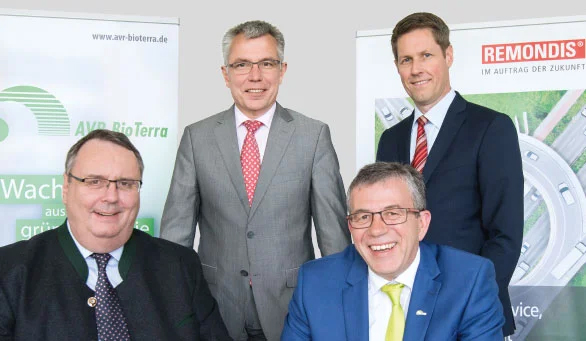
Siegfried Rehberger, Managing Director REMONDIS Südwest, District Administrator Stefan Dallinger, Peter Mülbaier, Managing Director AVR UmweltService, and Thomas Drewer, Managing Director, REMONDIS Südwest, signing the contract
Siegfried Rehberger will be representing REMONDIS in the new company as the managing director responsible for technology. Peter Mülbaier has been appointed the managing director in charge of commercial matters and will also be the spokesperson for the new public private partnership. “We are delighted to be part of this great project and to be able to contribute our experience as the largest recycling company in Germany,” Siegfried Rehberger said when the contract was signed. The amount of organic waste collected in the Rhine Neckar District has been rising rapidly each year – from around 7,000 tonnes in 2011 to around 47,000 tonnes in 2015; experts believe this could soon increase to 60,000 tonnes. Thanks to the new organic waste digestion plant, the local authorities and REMONDIS will be making the very most of the economic and environmental advantages of this material stream.
Frankfurt to make the most of its organic waste
For the first time ever, organic waste collected in Frankfurt is going to be used to produce biomethane. Rhein-Main Biokompost GmbH (RMB), a fully owned FES subsidiary, is collaborating with Mainova, Frankfurt’s largest energy provider, to transform raw biogas into biomethane so it can be fed into the gas supply network. In order to be able to achieve this goal, RMB’s organic waste treatment plant is to be extended so that its capacity of 123,000 tonnes per year will be almost doubled.

“By doing this, the plant will be able to handle greater volumes of local organic waste from the Rhine Main region which, in turn, means fewer materials need to be transported to plants located outside Hessen,” explained FES managing director, Benjamin Scheffler. The energy provider Mainova is also building a new plant to process raw biogas, which is due to be commissioned at the beginning of 2018. The biomethane will be enriched to have the same quality as natural gas before being fed into the Frankfurt gas network. “FES and Mainova are helping to drive forward the change from non-renewable to renewable energy by transforming organic waste into carbon-neutral gas,” commented Norbert Breidenbach, Board Member of Mainova AG. RMB will continue to own the gas after it has been processed and will also be responsible for marketing it. Unlike natural gas, biomethane is not a fossil but a renewable fuel. Both the doubling of the capacity of RMB’s plant and the increased demand for biomethane have meant that turning raw biogas into biomethane is not only environmentally but also economically more sensible than transforming it into electricity.
Image credits: © REMONDIS







